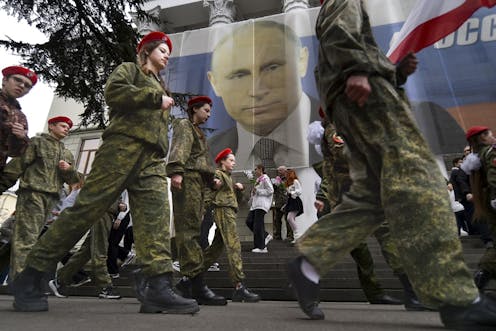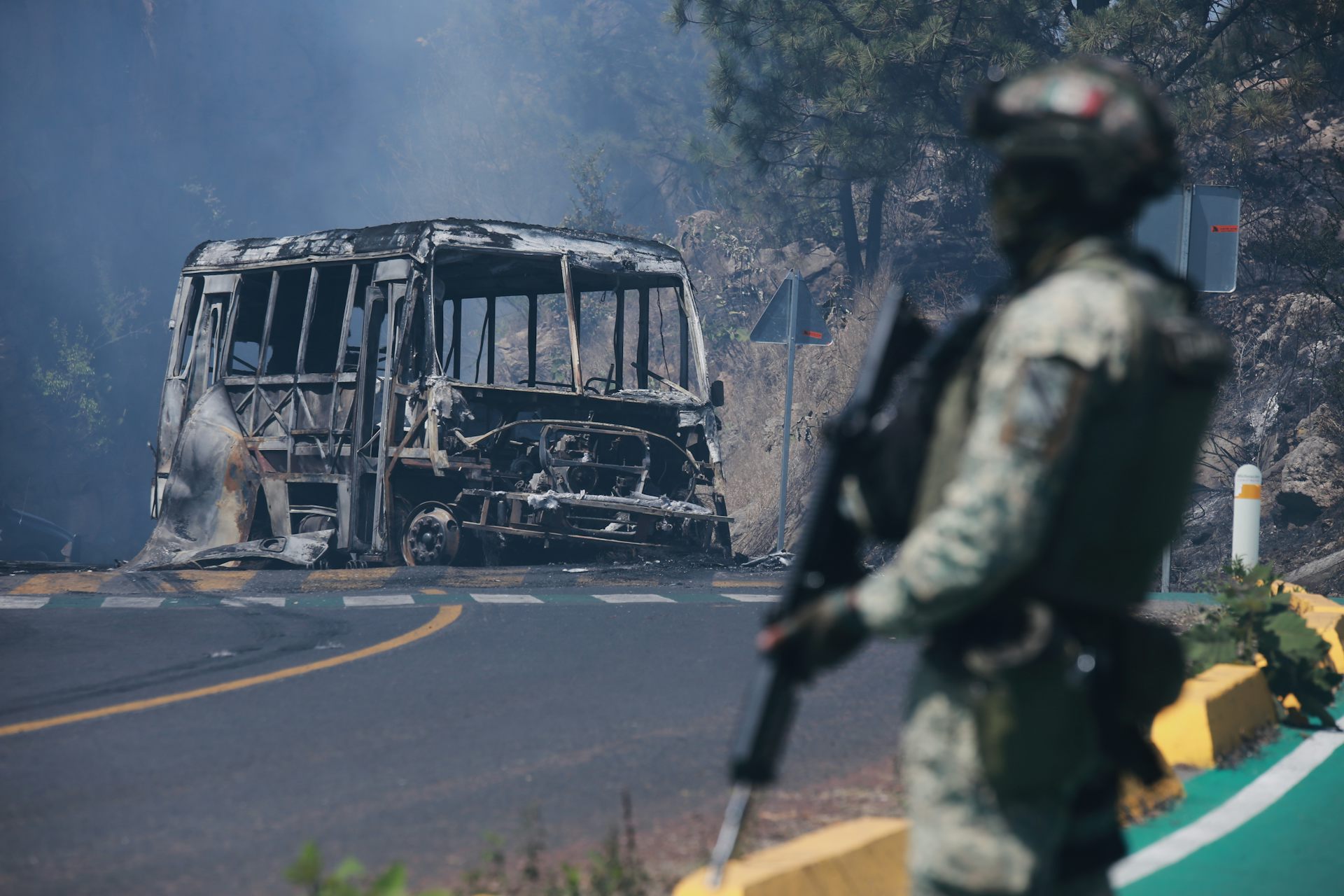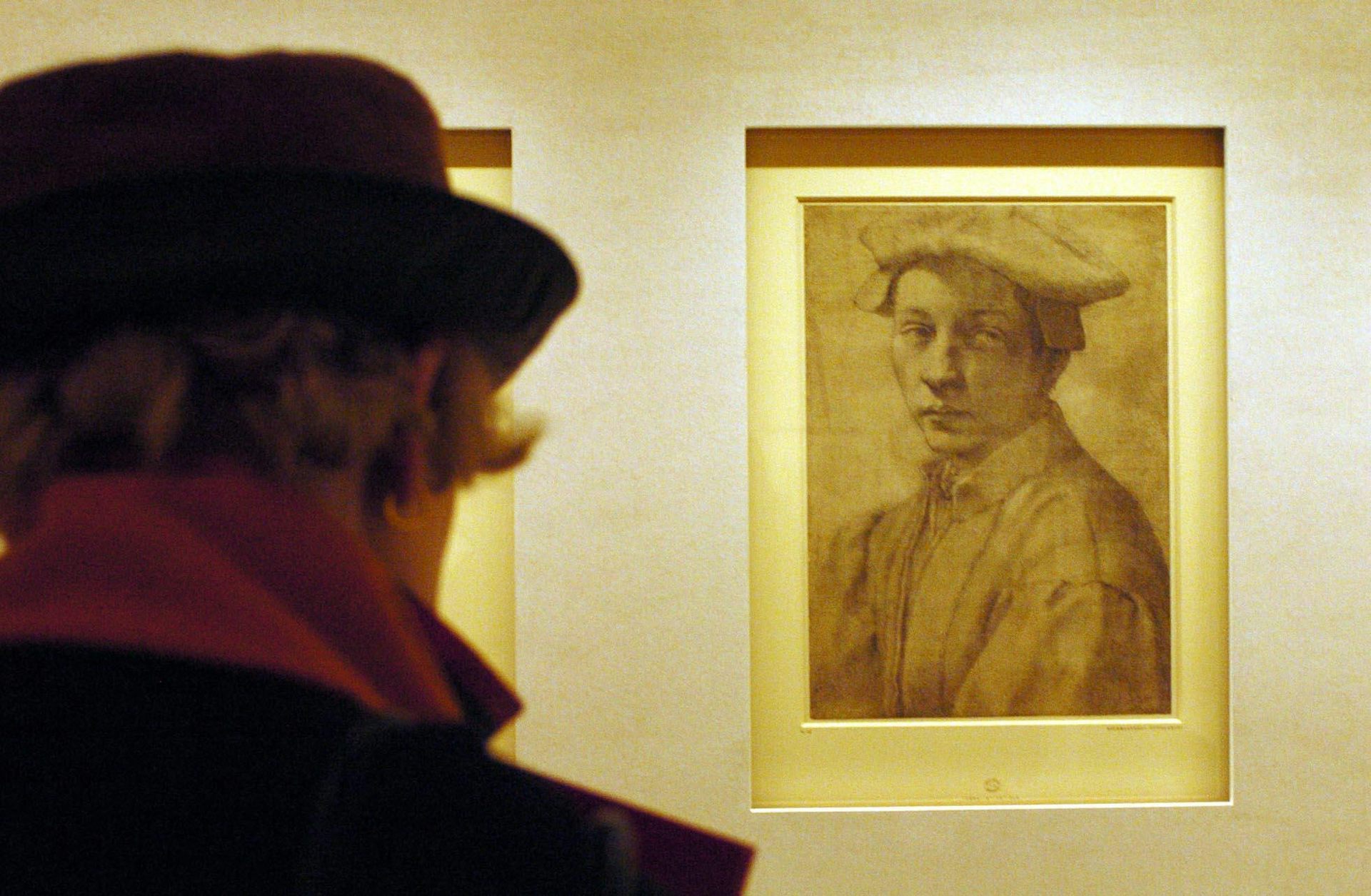Russia’s new ideological battlefield: The militarization of young minds
Russian President Vladimir Putin has increasingly turned to education and membership groups to promote patriotism and loyalty among the country’s youth.

Over the summer of 2024, some 250 Russian children traveled to North Korea for a 10-day-long kids camp. Framed as cultural diplomacy, the event was the result of a new youth exchange launched in 2022 that sees Russian youth compete for the free trip abroad. To win a place, children have to write an essay on one of three subjects: the role of Russia in a multipolar world; children’s interest in the culture of North Korea; or the story they would like to tell North Korean children about Russia.
The launch of the program comes as ties between Moscow and Pyongyang have grown closer. In the aftermath of Russia’s 2022 invasion of Ukraine, Moscow has needed to strengthen its relationship with anti-Western allies, not least to expand its ammunition supply market.
But the North Korea trip is merely one of recent myriad state-sponsored efforts to cultivate nationalism among Russia’s youth under President Vladimir Putin. The Russian state is increasingly trying to instill values of patriotism and loyalty among children through educational initiatives and the creation of new youth organizations.
Reports suggest that Russia plans to spend more than US$500 million in 2024 alone on so-called “patriot projects.” Much of this effort focuses on two areas: the creation of Russian nationalist youth groups, and the politicization of the nation’s schools – both of which have been increasingly prioritized since the war in Ukraine began.
The rise of Russian youth organizations
The North Korea cultural exchange program was facilitated by a Russian youth organization called the Movement of the First. The organization was launched at Putin’s behest in 2022, months after Russia’s invasion of Ukraine. It is modeled on the Young Pioneers – a youth organization of Stalinist ideology during the Soviet years.
Putin has boasted that the organization constitutes a “huge army” and routinely praises its activities, which include everything from more traditional civic activities, like tree planting, to explicitly ideological goals. Children, for example, write letters to service members deployed in the invasion of Ukraine.
The Movement of the First is only the most recent organization of its kind. Another youth group, the Volunteers of Victory, was established by the Russian state in 2015 and has a similar tie-in to Ukraine, as it was launched shortly after the annexation of Crimea in 2014.
The organization’s mission is to preserve Russia’s version of history and past victories and currently boasts 650,000 members in 89 regional branches. Members of the Volunteers of Victory are mostly teenagers who participate in a wide range of activities, ranging from meeting war veterans and recording and documenting their stories, to cleaning military cemeteries and war memorials. The goal is to create mass awareness about the heroic actions of Soviet and Russian armies, and to promote Russia as a military superpower.
While both of these groups have origins in Russia’s policy in Ukraine, they represent only a specific branch of a much larger ideological tree. Among Russia’s biggest youth organization is the The Youth Army, which claims more than 1.6 million members. It was established in 2016 under Defense Minister Sergei Shoigu, with the goal of training children for future careers in the uniformed military.
The organization tries to entice young people to join by touting self-actualization and social belonging in the military. Members are instructed in ideological topics like nationalism and more hands-on training like how to handle weapons.
The politicization of Russian education
In addition to promoting pro-Kremlin ideology through youth organizations, Russia has increasingly sought to politicize all spheres of education – from kindergartens and elementary schools to colleges and universities.
In 2023, all schools in Russia and in Russia-occupied territories introduced new mandatory high school textbooks that teach Kremlin-crafted and approved versions of history and culture. The books paint a clear picture of the glories of Russian nationalism against a hostile world, replete with a glorification of the Soviet system, a rehabilitation of the crimes of Stalinism, and omissions of past state-sanctioned genocides, purges, pogroms and forced labor camps.
From September 2022, Russian schools nationwide started holding “Conversations That Matter” – ideologically heavy lessons aimed at instilling patriotism.
In 2023, officials in Russia’s far-eastern regions came up with another general curriculum patriotic project, “The ABC of the Important Matters”. The alphabet, which includes words like “army,” “faith,” “honor,” “fatherland,” “homeland” and “traditions,” is already being taught in many kindergartens and elementary schools.
In schools throughout Russia, under the pressure of the state, teachers craft age-appropriate strategies of connecting children and young people with the Russian soldiers fighting in Ukraine. The youngest children are given simple tasks, such as drawing and coloring pictures of the letter “Z” ribbon or standing in formations to make the shape of that letter. The letter “Z” has been a symbol of the war and has become something of a badge for those who support the war. Older children write letters to soldiers serving in Ukraine, especially soldiers who are from their towns or regions, and make care packages.
And schools are now being supplied with desks featuring images and biographical details of distinguished soldiers, providing a vivid reminder of the proud history of Russian military heroism that young people are invited to join. In memory of graduates who went to fight in Ukraine and died, schools have installed “hero desks.”
The normalization of ‘Ruscism’
In the longer term, education and youth groups in Putin’s Russia aim to establish a deep and enduring sense of patriotism and respect for the military, presenting a government-friendly view of history and memory while shielding youth from opposing worldviews.
To be sure, Putin is hardly alone in seeking to use youth education and organizations to instill stridently nationalist values. History is full of rulers, particularly autocratic rulers, doing likewise. Mussolini’s Italy prioritized youth organizations like the Opera Nazionale Balilla, and Figli della Lupa, or Children of the She-Wolf. These inspired similar efforts in Hitler’s Germany, like the Nationalpolitische Erziehungsanstalten and Hitlerjugend, or Hitler Youth.
Modern-day Russia, under Putin, pursues its own nationalist and patriotic goals in ways that are attuned to today’s geopolitical realities and the circumstances of Russian history and society. Indeed, some scholars have defined Putin’s authoritarian approach as a uniquely Russian type of fascism, or “Ruscism.”
Like the term suggests, Putin’s approach looks to the authoritarianism of the past, including the Soviet era, and offers something specific to the Russia of today. As a Kremlin official suggested in 2023, Putin’s Russia is fighting a holistic war on three fronts: a territorial battlefield in Ukraine, an economic one against the West, and an informational one. On that latter front, it is to the future that Putin is looking in ensuring that his brand of authoritarianism is passed on to a younger generation of Russians.
Julia Khrebtan-Hörhager does not work for, consult, own shares in or receive funding from any company or organization that would benefit from this article, and has disclosed no relevant affiliations beyond their academic appointment.
Read These Next
Violent aftermath of Mexico’s ‘El Mencho’ killing follows pattern of other high-profile cartel hits
Members of the Jalisco New Generation Cartel have set up roadblocks and attacked property and security…
What is Bluetooth and how does it work?
Did you know that your wireless earbuds contain a tiny radio transmitter?
Picky eating starts in the womb – a nutritional neuroscientist explains how to expand your child’s p
While genes do influence some food preferences, positive experiences can help make new tastes easier…





